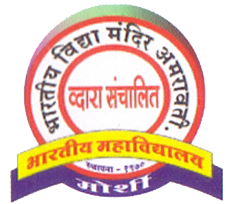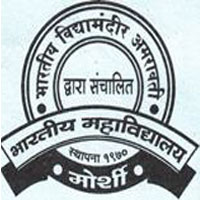National Service Scheme
Introduction
On 24 September 1969, the then Union Education Minister V.K.R.V. Rao launched the NSS at 37 universities all states. The scheme has been extended to all states and universities in the country, and also +2 level institutes in many states. In our college, the NSS Unit is established in the year 1975-76. Dr. Bhagwan Jalamsingh Sable, Head Department of Marathi, is working as a Program Officer NSS since 2022-23 for a tenure of three years. After commencement of the Academic session, in appropriate time, notice will be placed on the Notice Board of the college, for the students who desire to enroll him/herself and are directed to contact the NSS Program Officer.
OBJECTIVES OF NSS:
- understand the community in which we are working
- understand themselves in relation to their community
- identify the needs and problems of the community and involve them in problem-solving
- develop among themselves a sense of social and civic responsibility
- utilise their knowledge in finding practical solutions to individual and community problems
- develop competence required for group-living and sharing of responsibilities
- gain skills in mobilising community participation
- acquire leadership qualities and democratic attitudes
- develop capacity to meet emergencies and natural disasters and
- practise national integration and social harmony
MOTO OF NSS:
The Motto of NSS "Not Me But You", reflects the essence of democratic living and upholds the need for self-less service. NSS helps the students development & appreciation to other person's point of view and also show consideration towards other living beings.
The philosophy of the NSS is a good doctrine in this motto, which underlines on the belief that the welfare of an individual is ultimately dependent on the welfare of the society as a whole and therefore, the NSS volunteers shall strive for the well-being of the society.
NSS Logo:
The logo for the NSS has been based on the giant Rath Wheel of the world famous Konark Sun Temple, situated in Orissa, India. The Red & Blue colours contained in the logo motivate the NSS Volunteers to be active & energetic for the nation- building social activities. The wheel portrays the cycle of creation, preservation and release and signifies the movement in life across time and space, The wheel thus stands for continuity as well as change and implies the continuous striving of NSS for social change.
NSS Badge:
The NSS logo is embossed on the badge of NSS. The eight bars in the wheel of NSS logo represent the 24 hours of a day. The red colour indicates that the volunteer is full of young blood that is lively, active, energetic and full of high spirit. The navy blue colour indicates the cosmos of which the NSS istiny part, ready to contribute its share for the welfare of the mankind.
Activities:
NSS volunteers generally work in college and villages, to complete 120 hours of regular activities during an academic year. As per the fundamental principles of National Service Scheme, a volunteer is expected to remain in constant touch with the community. As the NSS volunteer is to live with the members of the community during the 7 days Special Camping Programme and learn from their experience during his/her tenure in NSS.
The NSS Programme Officer the college, with the prior approval of Principal, and NSS Co-ordinator, SGB Amravati University, adopted a village for NSS special camp for a duration of two years. For this programme officer NSS, approached the local authority i.e. Sarpanch of the village, Block Development Officer, Head Master of Zilla Parishad School in that village, and prominent personalities, and requested their cooperation, and presence for the special camp. During this 7 days NSS special camp, various programmes are implemented by the NSS Unit irrespective of daily programme and as suggested by the University, and the authority concerned. Guidance to the villagers and the NSS volunteers by inviting prominent speakers belonging to Government organization, NGOs on the subject of Watershed management, wastelands development, sanitation, nutrition and personal hygiene, schemes for skill development, income generation, government schemes such as Swatccha Bharat, Ayushman Bharat, Beti Bachao and Beti Padhao, Environment Conservation and Education, legal aid, consumer protection, is given.
In the past the themes of the Special Camping Programmes have been 'Youth Against Famine', 'Youth Against Dirt and Disease', 'Youth for Rural Reconstruction', 'Youth for Eco-Development' and 'Youth for Mass Literacy', 'Youth for National Integration & Social Harmony'. 'Youth for Sustainable Development with special focus on Watershed Management and Wasteland Development.
Every year 50 percent of volunteers are participated in this Special camp. The volunteers and the Programme Officer, Asstt. Program officer, stays in the village for whole of the camp period. The students who worked as NSS volunteers are develop a sense of belonging and respect for the people with whom they are.
Objectives of the Special Camping program:
The primary objectives of the special camping programmes are:-
Making education more relevant to the present situation to meet the felt needs of the communities and supplement the education of university/college/school students by bringing them face to face with the community situation.
To provide opportunities to NSS Volunteers to play their due roles in the implementation of various development "programmes by planning and executing development projects, which not only help in creating durable community assets in rural areas and slums but also result in improvement of the condition of weaker sections of the communities.
Encouraging the students and non-student youth to work along with the adults in rural areas, thereby developing their character, social consciousness and commitment, discipline and healthy and helpful attitudes towards the community:
Building up potential youth leaders by exploring the latent potential among the campers, both students as well as local youth (rural and urban), with a view to involve them more intimately in development projects for longer periods. The local leadership generated during the camps would also be useful in ensuring proper maintenance of the assets created as a result of the camps.
Emphasizing the dignity of labour and self-help and the need for combining physical work with intellectual pursuits, and
Encouraging youth to participate enthusiastically in the process of national development, and promote national integration through democratic living and cooperative action.
The aim of the Regular and special Camping Programme is to bring youth face to face with the community and make efforts to improve their life. Special Camping has been conceived as an opportunity to live with that community for 7 days, and experience the conditions and problems of the people. Although the focus of the Special Camps changes periodically and regular programmes are organized in response to the community needs at the micro-level, some broad areas of activities are as below
Tree plantation, their preservation and upkeep
Cleaning of internal village roads
Prevention of soil erosion, and work for soil conservation,
Watershed management and wasteland development
Preservation and upkeep of monuments, and creation of consciousness about the preservation of cultural heritage among the community.
Health education, AIDS Awareness and preliminary health care.
Population education and family welfare programme;
Programmes of educating people and making them aware of women's rights both constitutional and legal;
Creating consciousness among women that they too contributed to economic and social well-being of the community;
Creating awareness among women that there is no occupation or vocation which is not open to them provided they acquire the requisite skills; and
Beti Bachao Beti Padhao.
Organising blood donation, eye pledge programmes;
Assistance and guidance to the farmers by organising camp for animal health etc.;
assisting the health authorities in inoculation and immunization,
assisting and working with local authorities in relief and rescue operation;
programmes including discussions on eradications of social evils like communalism, casteism, regionalism, untouchability, drug abuse etc.;
legal literacy, consumer awareness.
Swatccha Bharat Mission
Voter awareness.
Dr. Bhagwan Jalamsingh Sable
NSS Programme Officer
Bharatiya Mahavidyalaya
Morshi
Dr. Rajanish G. Bambole
Principal
Bharatiya Mahavidyalaya
Morshi



